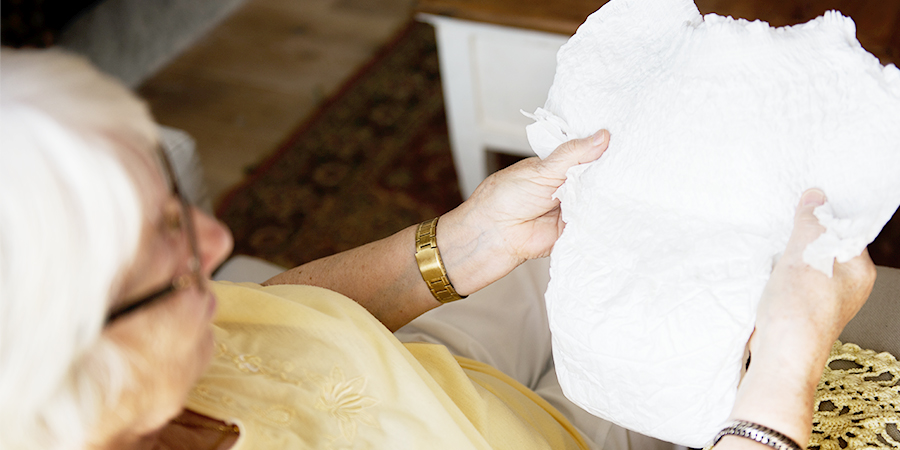Urinary incontinence is the involuntary loss of urine. The main problem is that it causes discomfort to the person, as it occurs at inappropriate times and in inappropriate places.
It is a fairly common condition in people over the age of 75, although it also occurs in younger people. It is also more common in women, but men also suffer from it.
It is common for people with incontinence to feel a sense of guilt and shame, feeling that it is something they cannot control and it causes them discomfort. This is especially true when they do not have any cognitive problems and are fully aware of what is happening to them.
Caring for the elderly is not an easy task, but when they also suffer from incontinence it can be complicated by the extra care involved, which can sometimes cause stress and nervousness. Let’s look at some tips to make caring for people with incontinence more bearable for both the sufferers and the carers, and to avoid embarrassment and frustration about the situation.
We have to bear in mind that there are different degrees and types of incontinence. The first thing to do is to consult your doctor. We must also bear in mind that people who have mobility are not the same as those who do not or have reduced mobility. The needs will therefore be different in each case.
There are a number of recommended guidelines for incontinent users to try to prevent and control leakage, and for their carers to make the situation easier and more manageable for both.
- Write down the number of times you go to the toilet. It is important to know how often urination occurs and when it happens in order to be more careful at these times. In this way, for example, after meals or after drinking a liquid, the person will be advised to go to the toilet afterwards.
- Bladder training. Yes, the sphincter can be trained and re-educated. Encourage the person to go to the toilet every 2-3 hours, even if they don’t feel like it. And that they do it without rushing, that they take their time. In this way the bladder will get used to not filling up completely and emptying more often.
- Avoid drinking liquids just before going to bed. And we would also add that you should go to the toilet just before going to bed. This way the person will go to bed with an empty bladder to avoid possible leakage.
- Wear comfortable clothes that are easy to take off when going to the toilet. This makes it easier and shortens the time they need to urinate and can avoid leaks that occur just when they get to the toilet and do not have time. In these cases, it is also essential that access to the toilet is unobstructed, and that the toilet can be accessed as quickly and comfortably as possible.
- Use of sanitary towels and/or nappies. This is a subject that is often uncomfortable and causes a lot of embarrassment, so it is essential to make them understand that it is normal and necessary. It will make them feel much better.
- Pay attention to hygiene. Keeping the area clean with soap and water is very important to avoid future infections. We emphasise this point for nappy users. Changing nappies and cleaning the area should be done every few hours to keep the area clean and dry. We also recommend the use of barrier creams, such as Qderm, which not only moisturise the area, but also soothe itching and protect it.
- Do as much physical activity as the user is able. In mild cases, muscle strengthening has been shown to help reduce urine leakage.
- Shame and blame. Talk normally and confidently about the subject. It is important that both the bladder weakness sufferer and the carer know the condition and needs of the user so that they can help as much as possible.
The bladder weakness sufferer is not to blame for anything and should not feel bad about it. They should be helped to take measures such as the above to improve their quality of life. - Put stress aside. This time, above all, this is a recommendation for the caregiver. We know that caring for someone is not an easy task, but if you generate stress and nervousness, it will not only cause discomfort not only for you but also for the patient. Work on your patience and put yourself in the other person’s shoes.

